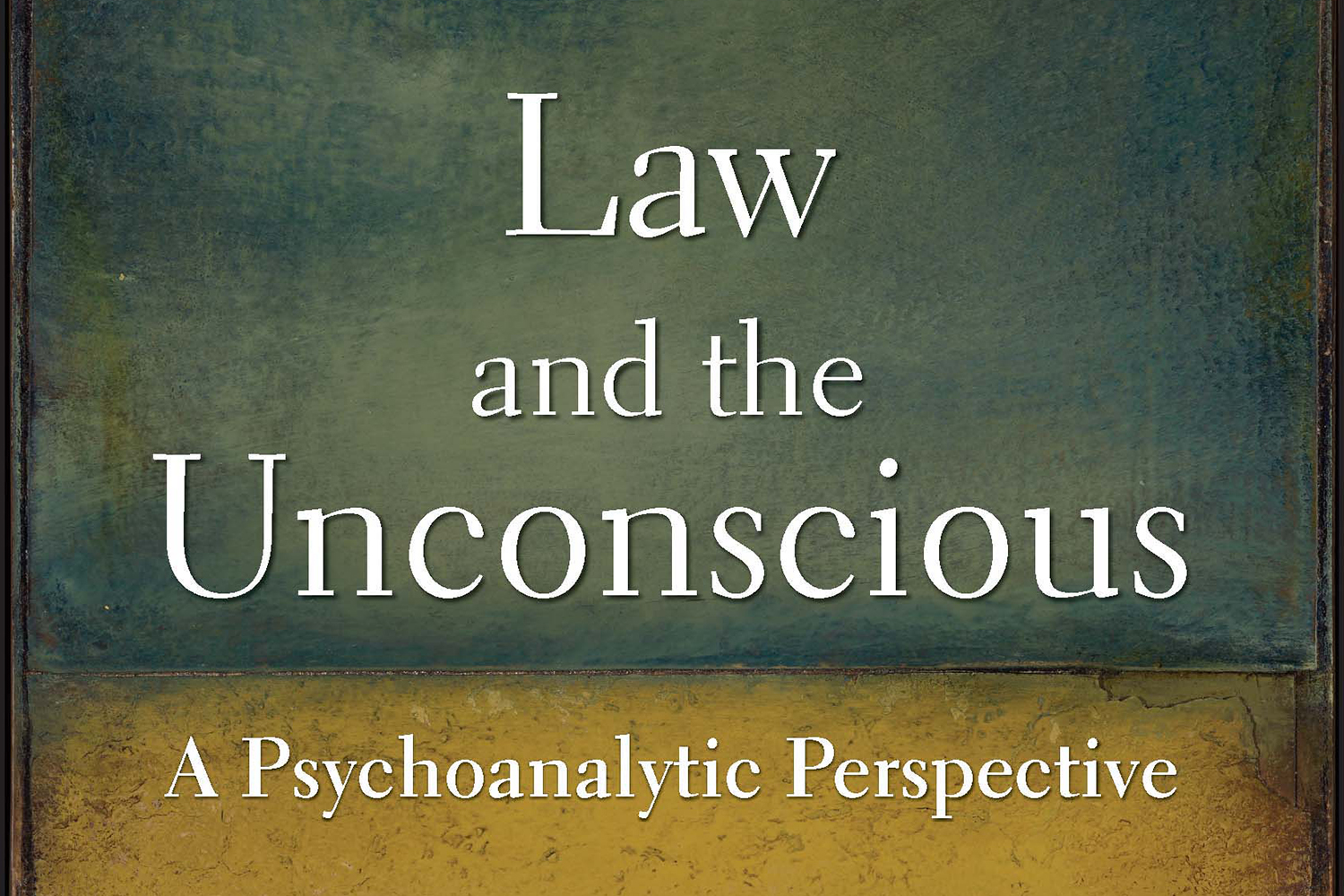When people confess to crimes they did not commit, sign obviously bad agreements, or “consent” to having sex with their therapist or employer, the law presumes that those actions are based on conscious, rational choices, a presumption that ignores the profound influence of unconscious beliefs, emotions and motivations on everyday behavior, UConn Law Professor Anne C. Dailey writes in her new book, Law and the Unconscious: A Psychoanalytic Perspective.
“The law’s denial of these ordinary manifestations of human irrationality can have punitive, even disastrous consequences,” she writes. People are wrongfully convicted of crimes on the basis of false confessions, spouses may be left destitute based on unfair prenuptial agreements, and patients and employees may suffer sexual harassment or worse. Psychoanalysis offers an account of human behavior, Dailey argues, that can help modify the law’s presumption of rationality in ways that better reflect the psychological reality of human decision-making and behavior.
The book, which will be released in December by Yale University Press, describes the long-standing relationship between psychoanalysis and American law. Dailey addresses popular misconceptions about psychoanalysis, including the idea that psychoanalytic ideas about the unconscious directly conflict with the law’s presumption that each individual, unless insane or coerced, acts upon the basis of free will. Psychoanalysis shows us that unconscious factors constrain and sometimes control an individual’s choices. Accepting the psychoanalytic view would appear to undermine the idea of moral responsibility and would seem to prevent society from holding people responsible for their behavior, including the crimes they commit.
That, Dailey writes, does not have to be the case. She does not advocate doing away with the presumption of rationality, nor does she argue that individuals are not accountable for their actions. Instead she makes the case that a proper psychoanalytic understanding can modify the law’s concept of free will in ways that will help further the ends of fairness and justice. She cites the case of a woman who was convicted of knowingly possessing a controlled substance with intent to distribute because the court concluded she was “willfully blind” to the fact that her mother and aunt had stowed marijuana in the car she was driving. Psychoanalysis helps to explain how the woman might have unconsciously repressed her suspicions about the criminal behavior of her mother and aunt.
“Psychoanalysis forces us to confront the inescapable fact that we cannot know with certainty what a criminal defendant actually thought or intended when he committed his crime,” Dailey writes. “Overall, a psychoanalytic perspective supports a criminal justice system more modest in its certainty, more tentative in its judgment, and more compassionate in its punishment.”
The book brings fresh insight to a several areas of the law, exploring how unconscious psychological factors can induce false confessions, how unconscious feelings of love and aggression can affect prenuptial and surrogacy contracts, how laws requiring therapists to report clients’ violent threats can endanger rather than protect the targeted individuals, why what looks like free choice on the part of adults engaging in incestuous relations may actually be driven by unconscious factors, and why the law should promote the development of autonomous decision-making skills in children.
Dailey has published widely on topics at the intersection of law and psychoanalysis as well as in the fields of family law and children and law. Her previous work includes Developmental Perspectives on the Ideal of Reason in American Constitutional Law, which won the CORST prize for best interdisciplinary essay from the American Psychoanalytic Association and was published in the Journal of the American Psychoanalytic Association. Dailey joined the UConn Law faculty in 1990 and was named the Evangeline Starr Professor of Law in 2004. She has taught as a visiting professor at the University of Pennsylvania Law School and Yale Law School. She is a graduate of Yale College and Harvard Law School.
The new book will be the subject of a discussion at 4 p.m. on Dec. 6, 2017, in the Reading Room in William F. Starr Hall on the UConn Law campus, with a reception to follow. The panel will include Professor Susanna Blumenthal of the University of Minnesota School of Law, Professor Martha Umphrey of Amherst College, and UConn Law Professors Steven Wilf and Richard Ashby Wilson. Students and alumni are invited, and are asked to RSVP by Nov. 30.



